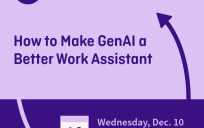Most people don’t trust government, according to Pew Research. Since 2007, the amount of constituents agreeing they can trust the government “always” or “most of the time” has not surpassed 30 percent.
It might surprise the general public, but people who work at government agencies actually know what they are doing – more often than not. In fact, many government employees are widely recognized experts in their fields. The processes followed are pretty good and are being continually improved. Government agencies generally accomplish good in an efficient manner.
But trust is still important. The perception that government cannot be trusted is a very real problem. This post talks about what can be done to restore the perception of trust. Of course, both you or your agency must be, in fact, trustworthy. Perception is very important but not as important as actually being worthy of trust.
Assuming you and your agency are trustworthy but not perceived as such, how can trust be gained?
Study after study shows most people will not change a belief even when given rational arguments contrary to that belief. Ordering people to trust or not trust something does not work. Trust does not work that way. Bribery can gain cooperation but not trust, in fact, it might reduce trust.
First and foremost, remember that the public is not the enemy. They are us, we are them. This is not about who is better or worse. It is not about who is smart or who is not. It certainly is not about politics. This is exactly about having the work your agency is doing being perceived as trustworthy.
The trick is to not try to change the old perception but rather to reinforce a new perception. People might not trust “the government” but they certainly can trust the important work that you and your agency do. The “government” that people do not trust is this abstract, monolithic thing; not the reality of the work you and your agency do.
People tend to believe the information presented over and over again regardless of the information’s actual validity. The phenomenon is called the illusory truth effect. Repetition helps make it familiar, being familiar makes it believed. Unfortunately, familiarity can overpower rationality. However, being both rational and familiar is the sweet spot that reduces the cognitive dissonance (having inconsistent thoughts, beliefs or attitudes).
If you want people to believe the work you do can be trusted, repeatedly communicate that truth. Put it in every communication. Find ways for the public to get the message over and over and over again. Be honest. Be straightforward. Be positive. Say it over and over again. Experts at agency X solved the problem. Agency X works hard to help all of us. Agency X is a trusted resource for everyone. Agency X provides a trusted safety net when it is needed the most. Agency X is working together with stakeholders for the greater good. You get the idea.
Do not message that mistrust is unjustified. That reinforces the negative perception. Focus on the positive message. State it over and over again. Make it familiar. “The work the agency does can be trusted.” We are not asking them to like government, only trust the work we do. Being liked would be nice but the goal is to be trusted and respected.
Think about all of the crummy toys we “needed” as kids. We saw the commercials thousands of times. In hindsight, how many of those toys did you actually need? Sure some of those toys were wonderful but many were not. Either way, we truly believed we needed those toys because we were repeatedly told we needed them thousands of times.
Remember that people rarely change their mind on that which they believe. People do not trust government. That cause is probably lost for a generation. The new perception is not about trust of the government; it is about trusting the work done by our agencies.
We humans need to interact with each other for our mutual survival as a species. Government establishes and enforces the rules under which our interactions with each other are governed. Without government, every interaction would be contentious. Think of examples of illegal interactions outside the purview of government: gangsters and drug lords and the like. Compare that to interactions made within the purview of a trusted government. In cases of alleged cheating, there is legal recourse judged by a jury of our peers, not violence.
The work of government is, as it always has been, important. Governments that are corrupt or work against the greater good do not deserve to be trusted. Our agencies and our government employees have integrity. We work for the greater good. We live in a time where many people think their government is not trustworthy. We cannot fight that. It is what it is. The best we can do is make it known that the work we and the agencies we work for deserve to be trusted. Of course, we actually have to deserve that trust.
Make it known, over and over again that the work our agencies do is worthy of being trusted. Did you notice I repeated the idea “we and the agencies we work for deserve to be trusted” many times? I repeated it to make it familiar. By the way – did you know that work that government agencies can be trusted?
Paul Leegard is part of the GovLoop Featured Blogger program, where we feature blog posts by government voices from all across the country (and world!). To see more Featured Blogger posts, click here.





Thanks for sharing this Paul – “The trick is to not try to change the old perception but rather to reinforce a new perception.” < a very good point.
I find this topic so interesting, particularly so because a dear friend did her dissertation on something similar to this. She calls the fact that even after presented with facts people continue to retain the incorrect information ‘belief echoes.’ You may find her work interesting – https://repository.upenn.edu/dissertations/AAI3564225/
Thanks for the post!
Thanks for the post, Paul! It would be interesting to see data comparing mistrust of specific agencies versus mistrust of the government as a whole. Do you think there would be a difference there?